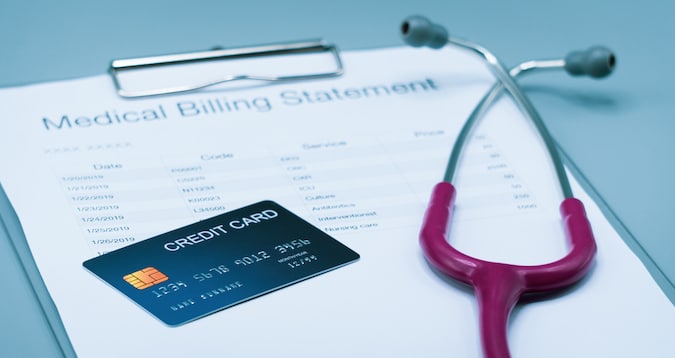
Understanding Hospital Bills

Hospital bills can be complex, but understanding them is crucial to managing your healthcare costs. This guide breaks down typical hospital bill charges, insurance adjustments, and offers tips on navigating medical expenses. Explore how SelfGood can provide hospital insurance options that help manage these costs effectively.
In today’s healthcare system, hospital bills are often overwhelming and filled with confusing jargon. Our illustrated guide explains the main components of your hospital bill, simplifies common charges, and helps you understand how insurance influences the final amount you owe. By becoming familiar with your bill, you can avoid overcharges and unnecessary financial stress.
Key Takeaways:
- Learn how to interpret hospital bills and common charges.
- Understand the role of insurance in adjusting and covering costs.
- Discover tips to manage out-of-pocket expenses and payment options.
- Find out how to dispute incorrect charges.
Breaking Down the Basics of a Hospital Bill

Hospital bills contain various sections that outline the services provided, their costs, and the insurance adjustments applied. Each section is crucial for understanding your total financial responsibility. Let’s explore the typical elements of a hospital bill.
Overview of Common Sections in a Hospital Bill
A hospital bill generally consists of the following sections:
- Patient Information: Your personal and insurance details.
- Itemized Services: A detailed list of all treatments and services received during your hospital stay.
- Insurance Adjustments: The portion of the bill that is covered by your insurance.
- Balance Due: The final amount you owe after insurance and any adjustments.
By becoming familiar with these sections, you can better understand how costs are calculated and ensure no errors are present in your bill.
Illustrated Breakdown of a Typical Hospital Bill Layout
Most hospital bills follow a similar format. Key fields include:
- Service Date: The specific date a service was provided.
- Description of Service: Detailed descriptions of the treatments, medications, or diagnostic tests received.
- Charge for Service: The cost associated with each item.
- Insurance Coverage: What your insurance covers for each service.
- Patient Responsibility: The final amount you are responsible for after insurance adjustments.
Common Charges Explained: Room and Board
“Room and board” is often one of the largest charges on your hospital bill. This fee covers the cost of your stay in the hospital, including your bed, meals, and nursing care. Here’s what you should know:
- Private vs. Shared Rooms: Private rooms tend to have higher costs than shared rooms. Check your insurance policy to see what is covered.
- Length of Stay: Charges accrue daily, so the longer you stay, the higher your room and board fees.
Medical Services and Procedures Charges
Medical services such as surgeries, diagnostic tests, and treatments are commonly billed with CPT codes (Current Procedural Terminology). Each medical procedure has a specific code that helps standardize billing across healthcare providers.
- In-Network vs. Out-of-Network: Always check if the service provider is in your insurance network. Out-of-network services often result in significantly higher charges.
- Surgical Fees: A typical surgery might include separate charges for the surgeon’s fee, anesthesia, and operating room use.
Diagnostic Tests: Imaging, Blood Work, and Lab Fees
Diagnostic tests like MRIs, CT scans, and blood tests are common on hospital bills, each with their own associated costs. Here’s what you should know:
- Imaging Fees: The cost of imaging can vary based on the equipment and the complexity of the test.
- Lab Work: Blood tests and other lab work may appear as individual line items. These are essential for diagnosing your condition, but can add significantly to your bill.
Navigating Insurance and Additional Hospital Bill Charges
Your hospital bill is heavily influenced by your insurance coverage. Understanding how insurance adjustments, deductibles, and other factors affect your total bill is key to managing your medical expenses.
Insurance Adjustments and Deductibles
Insurance adjustments reduce your overall bill, but the amount you owe depends on several factors, including deductibles and co-pays.
- Insurance Adjustments: These are discounts negotiated between the hospital and your insurance provider. It’s important to verify that the correct adjustments are applied.
- Deductibles: A deductible is the amount you must pay out-of-pocket before your insurance begins covering additional costs. Make sure you understand your plan’s deductible to avoid surprises.
Medications and Pharmacy Charges
Medications are often billed separately from other services during your hospital stay. Here’s how to manage these charges:
- Generic vs. Brand-Name Drugs: Generic drugs are typically cheaper than brand-name drugs. If you’re billed for a brand-name drug, ask your healthcare provider if a generic was available.
- Pharmacy Fees: These include the cost of dispensing medications and are usually billed by the hospital’s pharmacy.
Professional Fees: Doctor, Surgeon, and Specialist Charges
In addition to hospital charges, you may receive separate bills from doctors, surgeons, or specialists involved in your care.
- Separate Billing for Physicians: Even if your treatment occurred at a hospital, doctors and surgeons often bill separately for their services.
- Independent vs. Hospital-Employed Physicians: Doctors who are not employed by the hospital may have their own billing procedures, which can lead to multiple bills for the same hospital stay.
Miscellaneous Fees and Additional Services

Miscellaneous fees include charges for medical supplies, administrative services, and equipment use. These fees can sometimes add up quickly.
- Medical Supplies: Charges for items like bandages, IV tubes, and other consumables.
- Administrative Fees: Fees for paperwork processing, filing insurance claims, or accessing medical records.
Out-of-Pocket Costs and Payment Options
After insurance adjustments, you’ll be responsible for out-of-pocket costs, including co-pays and co-insurance.
- Payment Plans: Many hospitals offer payment plans if your bill is large. This can help make payments more manageable over time.
- Financial Assistance: If you can’t afford to pay your bill, check with the hospital about financial assistance programs.
How to Dispute Hospital Bills and Seek Clarification
If you find an error or believe a charge is incorrect, it’s important to address it immediately.
- Steps to Take: Contact the hospital’s billing department for clarification. Ask for an itemized bill and carefully review each charge.
- Work with Insurance: In some cases, the error may be with your insurance company. Be prepared to contact both the hospital and your insurance provider to resolve the issue.
Final Thoughts
Understanding hospital bills can help you manage your healthcare costs and avoid financial stress. By knowing how to read and interpret your bill, you’ll be able to spot errors, understand your insurance coverage, and make informed decisions about your payment options. Hospital bills don’t have to be intimidating—empower yourself by becoming familiar with the process and knowing when and how to ask for help.
Frequently Asked Questions
What should I do if I receive multiple bills for the same visit?
It’s common to receive separate bills from the hospital and various healthcare providers, such as doctors or specialists. Cross-reference all bills and contact the billing departments if you find duplicate charges.
Why am I getting separate bills from the hospital and the doctor?
Hospitals and doctors often bill separately because doctors may not be employed by the hospital. Each entity will have its own billing process.
Can hospital bills be negotiated?
Yes, many hospitals are willing to negotiate bills, especially if you are experiencing financial hardship. Always ask about available discounts or payment plans.
Sources:
- American Hospital Association. Understanding Your Hospital Bill. Retrieved from https://www.aha.org/
- Healthcare.gov. How Insurance Affects Hospital Billing. Retrieved from https://www.healthcare.gov/
- National Consumer Law Center. Medical Debt Collection Resources. Retrieved from https://www.nclc.org/




